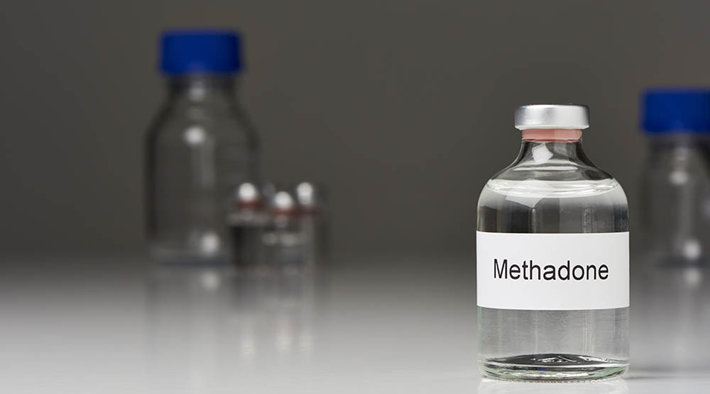Effects of Methadone Abuse

Used properly and with careful supervision, methadone can be used as a long-lasting pain reliever for severe pain and for Methadone Maintenance Treatment (MMT). In MMT, methadone is given to those who have been addicted to opiates like heroin or OxyContin to prevent withdrawal symptoms while improving the addicted person’s quality of life. Here too, dosages must be carefully managed to prevent overdose at the same time it is preventing withdrawal sickness. As methadone is a long-lasting opiate, it will stay in the body for as long as 56 hours, so if another dose is taken too soon, a fatal overdose can occur. Another concern is that a person is now addicted to methadone which can be much harder to get off of than heroin.
[See also: signs and symptoms of methadone use]
Methadone began to be abused in much greater numbers when the number of doctors using methadone for pain relief purposes increased more than seven-fold between 2001 and 2007. In Florida, an examination of drug overdose deaths over a five year period found that deaths due to methadone were second only to deaths from cocaine overdose. Nationally, methadone overdose deaths increased 400% between 2001 and 2004. Thus some of the all-too-common effects of methadone abuse are addiction, overdose and death.
The use of methadone with other drugs that suppress respiration such as alcohol can also be dangerous or fatal. Any other drug that makes you sleepy, such as antidepressants, alcohol, anti-anxiety medications or antihistamines can also increase methadone’s dangerous effects.
After a while on methadone and after developing a tolerance to the drug, the abuser will not get high anymore but will continue to feel drugged. But they may suffer from a long list of adverse effects as long as they are abusing this drug.
The list of Methadone’s adverse effects includes:
- Intolerance to heat
- Weight gain
- Constipation
- Nausea
- Low blood pressure
- Vomiting
- Irregular heartbeat
- Loss of appetite
- Difficulty urinating
- Swelling of hands and arms, feet and legs
- Insomnia
- Disinterest or dysfunction sexually
A study in New Zealand of the health problems suffered by those taking methadone was found those to be:
- Sweating
- Headache
- Fatigue
- Depression
- Hay fever
- Abscesses
- Sleep disturbances
- Dental problems
In general, those on methadone were found to suffer poorer health than the general population. In that study, 42% of those on methadone met the criteria for major depression. Poor diets resulting from the cravings generated by the drug led to a preference of sweet foods. Alternately, some people on methadone often skipped meals for days.
In one study, the participants complained about being unable to fall asleep or stay asleep, or horrible dreams. Some people who could not sleep or who had poor appetites were driven to use other drugs to help them sleep or to boost their appetites.
A study in Australia reported that more than half the men taking methadone as opiate addiction treatment suffered from sexual dysfunction or disinterest.
If any substance is abused or used medically that contributes to central nervous system depression or respiratory depression, sleepiness or interference with heart rhythms, or even slow or stop bowel movements, that drug can interact with methadone in such a way as to pose a lethal threat.
Pregnancy Effects
If a woman takes methadone while she is pregnant, her baby may go through withdrawal symptoms after birth. (Some mothers report no withdrawal symptoms, however.) These symptoms include failure to gain weight or weight loss, irritability, being overactive and seizures. A woman nursing a baby can also pass methadone along to the baby in her milk, resulting in the adverse effects of methadone such as vomiting, nausea, itchiness, poor appetite, and trouble sleeping.
Recovering from Methadone Addiction
Most people withdrawing from methadone find it to be a much longer process than withdrawing from opiates because of the length of time the drug stays in the body. It can take a month for a person to get fully sober from methadone before they start a drug rehab program.
A thorough detoxification is an important aspect of recovery for a person who has been addicted to methadone. This is accomplished as part of the Narconon drug and alcohol recovery program with the use of a sauna, generous nutritional supplementation and moderate daily exercise. These three factors, combined in the Narconon New Life Detoxification, activates the body’s ability to flush old drug residues out of fatty tissue where it lodges. When the old drugs are flushed out, one’s attitude and ability to think become more like they were before drug use, with a brighter outlook. And most people report greatly lowered cravings for drugs as well.
If you are trying to help someone recover from methadone addiction, contact Narconon for more details.
Resources:
 ®
®